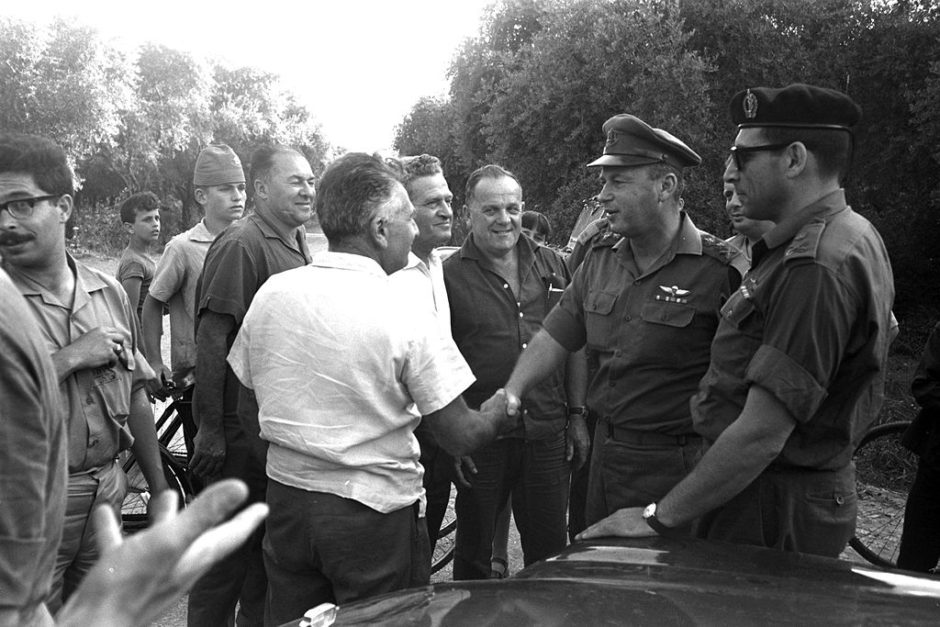The shock of Yitzhak Rabin’s assassination on November 4, 1995 has worn off, but his presence is still keenly felt in Israeli politics. Twice prime minister, Rabin paid dearly for his moderate beliefs. Murdered by Yigal Amir, an acolyte of the right-wing national religious camp, Rabin was a taciturn, shy, reflective person who made the transition from awkward politician to widely respected statesman. Had he lived, the Oslo peace process, with all its hopes and dreams, might not have failed and Israel and the Palestinians may well have reached a peace agreement.
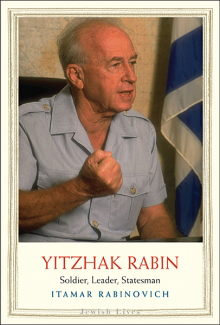
Itamar Rabinovich, one of Rabin’s closest aides, offers an incisive and fair analysis of him in Yitzhak Rabin: Soldier, Leader, Statesman, published by Yale University Press. Part of Yale’s Jewish Lives series, it’s a vivid portrait of Israel’s first native-born prime minister, who was tragically cut down during his second term of office.
A product of the secular, middle-of-the-road Labor Zionist movement, Rabin was capable of making bold, historic decisions. One of them, the decision to cede land to the Palestinians in the West Bank in return for Palestinian recognition of Israel, earned him the undying enmity of Jewish nationalists opposed in principle to territorial concessions. Rabin’s equally important gambit, the opening of peace negotiations with Syria, fell by the wayside. His rapprochement with Jordan, however, worked.
The Arab-Israeli conflict dominates this thoughtful book, but Rabinovich is no less interested in fleshing out telling personal details about Rabin, whom he describes as a late bloomer. Born in Jerusalem in 1922, when Palestine was a British Mandate, he was the son of Russian Jews. Rabin originally thought he would study water engineering in California, but the Arab Revolt of 1936 and the outbreak of World War II in 1939 pushed him into joining the Palmach, a Jewish military force commanded by Yigal Alon, who one day would be Rabin’s foreign minister. Alon, having spotted Rabin’s talents, appointed him his deputy.
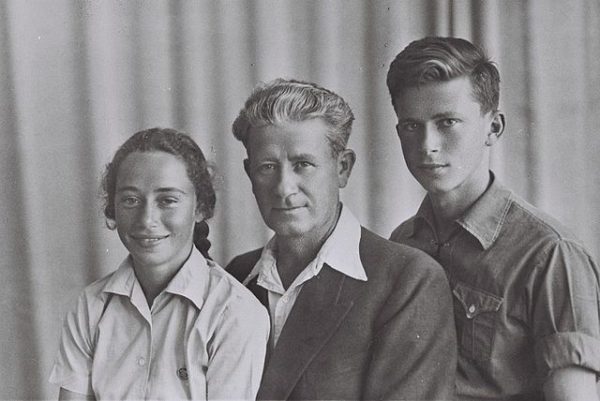
Rabin’s first experiences as a commander occurred in 1945, when he directed raids against the British. During Israel’s 1948 War of Independence, he conducted military operations in and around Jerusalem and the Negev and, regrettably, played a role in the expulsion of thousands of Palestinians from Lydda and Ramleh. By war’s end, he had been promoted to the rank of lieutenant colonel.
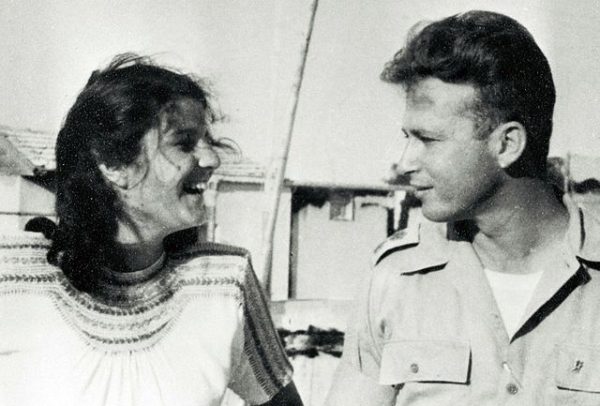
During the early 1950s, he established a reputation as a military thinker and planner. By the late 1950s, he was a major general, in charge of the Northern Command. Appointed chief of staff of the armed forces in 1964, he subscribed to the doctrine that Israel should fight the next war in the enemy’s territory.
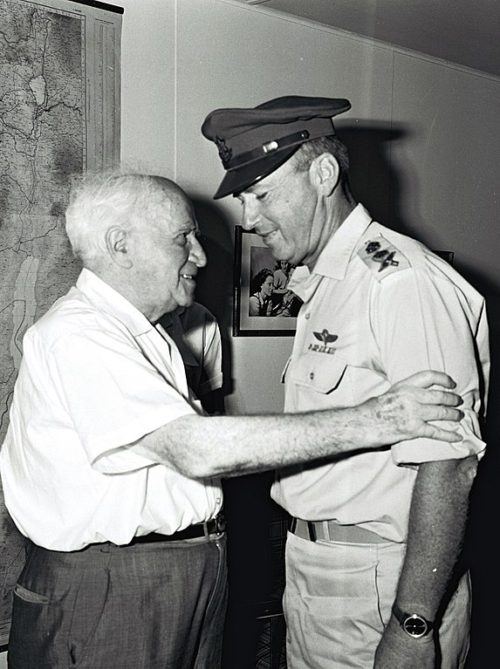
On the eve of the 1967 Six Day War — which unfolded on Egyptian, Syrian and Jordanian soil — he succumbed to physical exhaustion and acute anxiety. Some called his condition a nervous breakdown. The magnitude of Israel’s victory buried that incident and prompted Rabin to ask a surprised Prime Minister Levi Eshkol whether he could appoint him ambassador to the United States. Rabin believed that an ambassadorship would facilitate his entry into Israeli politics.
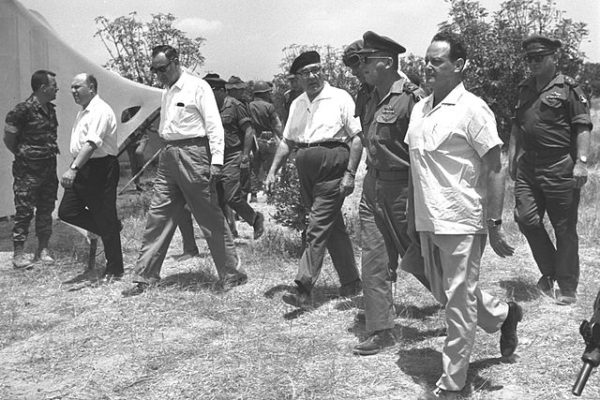
As ambassador, Rabin’s task was two-fold: to maintain the United States’ support for the status quo in the occupied areas and to persuade the Lyndon Johnson administration to sell Israel its latest weapons, particularly F-4 Phantom jets. Rabinovich believes that one of the high points of Rabin’s tenure in Washington was his direct involvement in Israel’s success in deterring Syria from invading Jordan in 1970. “It would set the stage for a period of unprecedented closeness and intimacy in Israel’s relationship with Washington,” writes Rabinovich, who was Israel’s ambassador to the United States and its chief negotiator with Syria from 1992 to 1996.
Rabin stirred controversy when he publicly backed President Richard Nixon for reelection in 1972. He regarded Nixon as a real friend of Israel and was concerned that his opponent, George McGovern, was too liberal.
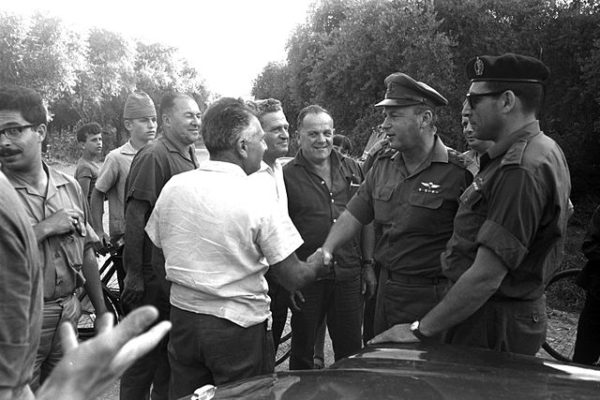
Rabin’s ambassadorship was an important phase in his career, permitting him to transition from general to politician, says Rabinovich, who’s currently president of The Israel Institute in Tel Aviv and Washington, D.C.
Rabin went into politics in the spring of 1973, serving under Prime Minister Golda Meir as minister of labor. He succeeded Meir in 1974, having defeated his rival, Shimon Peres, in the Labor Party runoff. Although Rabin disliked Peres and considered him an inveterate schemer, he appointed him minister of defence. Rabin did not reappoint Abba Eban, a rival, as foreign minister.
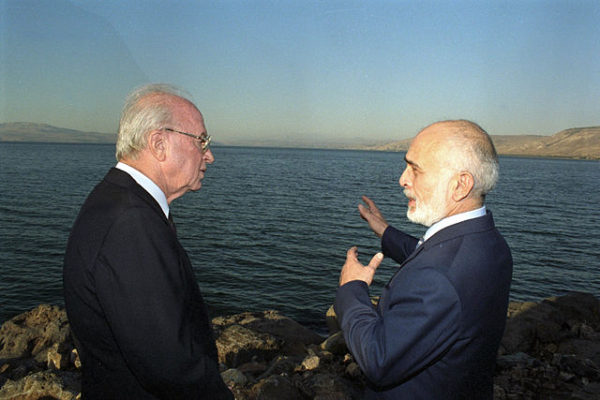
As prime minister, Rabin formed secret bonds with King Hussein of Jordan. Their relationship was sustained by mutual enmity to the PLO and Syria and by Israel’s commitment to the survival of the Hashemite regime. King Hussein was willing to sign a peace treaty with Israel, but only on condition of a full Israeli withdrawal from the occupied territories, including East Jerusalem and the West Bank. These were conditions that Rabin could not accept. Years later, in 1994, Israel and Jordan finally reconciled their differences and reached a peace agreement.
Rabin’s refusal to withdraw Israeli forces from the Mitla and Gidi passes in the Sinai Peninsula prompted U.S. President Gerald Ford to announce a “reassessment” of its Middle East policy. Several months later, a chastened Rabin bowed to American pressure, permitting U.S. Secretary of State Henry Kissinger to resume his shuttle diplomacy.
With a civil war raging in Lebanon, Rabin agreed to send military equipment to Maronite Christian forces. He accepted Syria’s armed intervention in that war, but insisted that the Syrians had to remain 40 kilometres north of the Israeli border and could not deploy ground-to-air missiles in Lebanon.
He was also clear on the Palestinian issue. Israel would not negotiate with the PLO and would align itself with Jordan in administering the West Bank. Rabin supported the construction of settlements on the Golan Heights, in sparsely populated sectors of the West Bank and in areas around Jerusalem. He was adamantly opposed to Gush Emunim’s plan to build settlements throughout the West Bank.
The years 1977 to 1980 represented the nadir of his career. His term as prime minister ended badly, Peres replaced him, and the Labor Party was defeated by the Likud. Despite these setbacks, Rabin decided to remain in politics, a decision that enabled him to become minister of defence in the Likud-Labor unity government in 1984. According to Rabinovich, four major issues faced him — Israel’s partial withdrawal from Lebanon, the first Palestinian uprising, the cancellation of the homegrown Lavi jet project, and the effort to revive the Palestinian autonomy plan for the West Bank and the Gaza Strip.
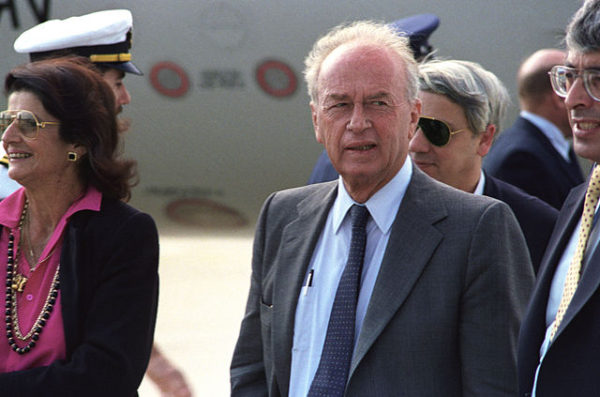
Rabin was defence minister for six years, returning to his post as prime minister in 1992. Speaking of his agenda in the Knesset, he cast doubt on the settlement project in the West Bank and Gaza and promised to complete an autonomy agreement with the Palestinians within nine months. “Rabin believed the main threats to Israel’s national security lay in the Middle East’s eastern flank, in Iran and Iraq, and he saw an opportunity to transform Israel’s relationship with its immediate neighbors in order to deal with the graver challenges from the East,” says Rabinovich.
Although he had opposed a full Israeli pullout from the Golan, he was willing to make significant concessions to Syria, and was prepared to deal seriously with the Palestinian issue.
Delving deeply into Israel’s talks with the Syrians, Rabinovich explains why they floundered. The first obstacle was Syrian President Hafez al-Assad’s demand for a commitment by Israel to vacate the Golan in its entirety even before Syria disclosed its negotiating positions. Israel balked. Rabin, in turn, sought tangible proof of Syria’s desire to normalize relations with Israel. Syria refused.
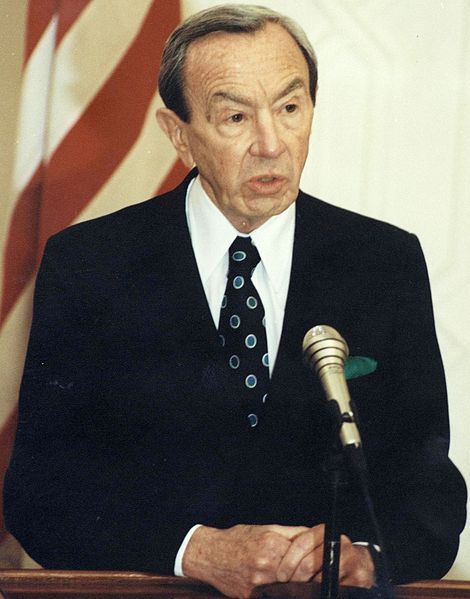
Rabin told U.S. Secretary of State Warren Christopher that if Syria was prepared to meet his demand, he would be ready to accede to Syria’s conditions. Rabin placed his “deposit” with Christopher, but asked him not to put it on the table. Rabin was theoretically willing to withdraw from the Golan Heights over a five-year period, but Assad wanted this timetable to be reduced to six months, and would not offer Rabin meaningful normalization in exchange for what would first be a limited Israeli withdrawal.
Another problem emerged when Syria demanded an Israeli withdrawal to the June 4, 1967 lines rather than to the 1923 international boundary. If Israel had conceded this point, Syria would have had direct access to the Sea of Galilee, Israel’s most important water reservoir.
“Assad proved to be an exceedingly difficult negotiating partner, one who ultimately led Rabin to conclude he was not interested in a deal, or more charitably, not sufficiently interested to make a traditional negotiation work,” says Rabinovich.
Rabin’s view of peace with the Palestinians was hard-nosed. It hinged on his refusal to return to the pre-1967 border, on his view that a Palestinian entity would be “less than a state” and on his demand that Israel should retain eastern Jerusalem and settlement blocs near the old Green Line. As well, Rabin insisted that Israel’s security border should be in the Jordan Valley.
Being pragmatic, Rabin permitted Israeli negotiators to secretly test the Oslo track, which brought PLO representatives to the table. As Rabinovich indicates, Rabin was ambivalent toward Oslo, but he knew that Israel’s official talks in Washington with non-PLO Palestinian officials had been fruitless.
The Oslo process heartened many Israelis, but the psychological effect of Palestinian terrorism on Israeli public opinion was horrendous, he notes. The specter of terrorism turned Israel further to the right, emboldened the settlers and their supporters and led to a campaign of fierce incitement against Rabin. Benjamin Netanyahu, the opposition leader, was not directly involved in it. But as Rabinovich correctly points out, he did not distance himself from it either. He also accuses Netanyahu of having emasculated the Oslo process and destroyed its momentum.
Rabinovich is critical of the “oversights and failures” of Rabin’s security attachment on the night he was shot and killed in Tel Aviv. His guards neglected to provide even the most elementary measures of personal protection, he claims.
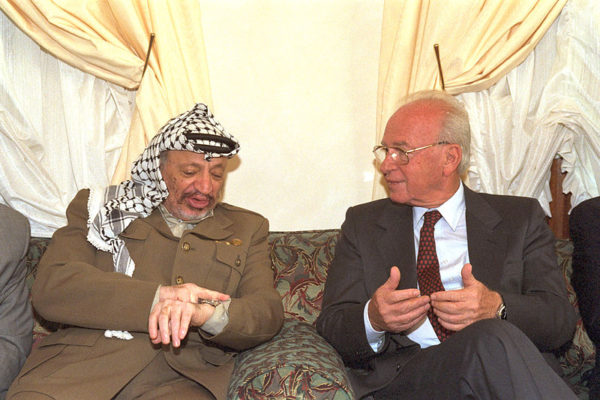
Unlike some commentators, he is not certain whether Rabin would have reached a conclusive peace agreement with Yasser Arafat, the president of the Palestinian Authority and the chairman of the PLO. “Rabin was critical of Arafat’s failure to live up fully to his commitments and especially of his failure to crack down on Hamas,” he writes.
He contends that Rabin’s successors, Ehud Barak in 2000 and Ehud Olmert in 2008, made concessions to the Palestinians that went beyond what Rabin offered them in 1995.

In a sober appraisal of Rabin’s policies, Rabinovich advises he should be viewed realistically.
“It is wrong to remember and commemorate Rabin as a dovish leader,” he observes in his closing remarks. “Rabin was a centrist leader preoccupied with Israel’s security … To him, the quest for peace was intimately connected with the quest for security. He was willing to make painful concessions, but he scrutinized such concessions through a security lens.”
In short, he sought to settle Israel’s conflicts with the Palestinians and its Arab neighbors through a peace accord grounded in “solid security arrangements.”
Alas, his quest for peace was dashed by a Jewish fanatic whose extremism and myopia are lamentably rooted in contemporary Israeli society.
